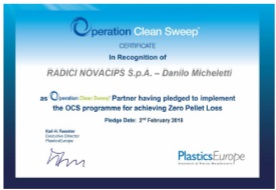Polymers Petrochemicals Circular Economy 25-01-2019 - Arhive
This article has been updated to take account of new developments.
Despite Theresa May’s repeated opposition to a second UK referendum over Brexit, many advocates of such a move believe another public vote will eventually be inevitable.
The prime minister’s response to the huge parliamentary defeat inflicted on the UK-EU exit deal caused dismay, not only because ¨Plan B bore a striking resemblance to the ill-fated Plan A. It also appeared to confirm that her preferred Plan C would be no deal at all.
This has galvanised opposition to a scenario that many politicians, business people and trade experts believe would be catastrophic for the British economy, as well as bad for Europe. By law, the UK is due to leave the EU on March 29.
In parliament, moves have been stepped up to wrestle control of the Brexit process away from the government and into the hands of MPs. Amendments are being put forward which could see Brexit delayed in the absence of a deal.

China – Polyethylene Terephthalate
PET and its chain are weak.
PET Bottle grade export 1,040/1,080 $/ton – PET Bottle grade domestic market 8,250/8,400 yuan/ton – PET Filament grade SD domestic market 7,800/7,950 yuan/ton – PET Filament grade BR domestic market 7,800/7,900 yuan/ton
PTA Taiwan 825/835 $/ton – PTA domestic market 6,500/6,600 yuan/ton – MEG $ 615/625 $/ton – MEG domestic market 5,000/5,100 yuan/ton – PX Korea 1,040/1,050 $/ton
POY 150D/48F domestic market 8,500/8,600 yuan/ton – DTY 150D/48F domestic market 10,350/10,450 yuan/ton – PSF domestic market 8,900/9,000 yuan/ton
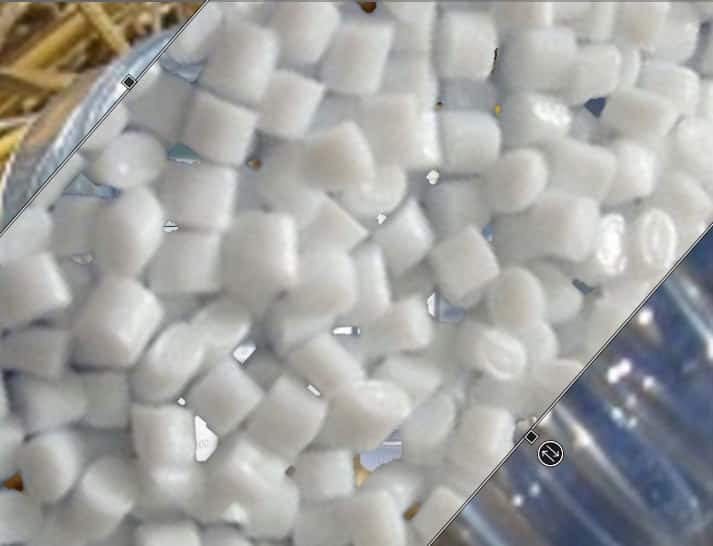
Crude Oil Prices Trend

Bioplastics and RF technology outfit Biome Technologies saw full-year revenues soar 42% year-on-year but a drop in revenues from its bioplastics division led to a sell-off in shares early on Thursday.
Biome reported revenues of £8.8m in the year ended 31 December, but a 17% drop in bioplastics revenues to £1.9m was enough to weigh on sentiment.
The AIM-listed firm said the drop in revenues was a result of efforts to significantly lower sales of outer packaging for the US single-serve coffee market. Sales of its non-woven filter mesh for the US coffee pods have increased, together with other revenues, by more than 50%, compared to the prior year, however.
Biome stated that it was continuing to build a “more diverse and extensive portfolio” of bioplastics applications – with new and existing customers expected to “contribute substantially” to sales in “the latter part of 2019”.
Looking forward, Biome said: “As 2019 unfolds, we expect a gradual but substantial increase in bioplastics revenues.”

To align the industry’s drive for higher performance with the increasing customer demand for sustainable solutions, the market needs to consider different packaging concepts and materials for laminates and hot drinks products.
Plastics derived from renewable biomass (plant material), such as PBS, are rising to the challenge – write Fabien Resweber (PTTMCC Biochem) and Lawrence Theunissen (Reverdia) The highest priority should be to reduce, re-use or recycle packaging materials.
In specific cases where recycling is not technically or economically possible, solutions are being developed based on compostable materials, including paper, cardboard and also compostable plastics.
While PLA is probably the most widely known compostable plastic, other materials like PBS (poly-butylene-succinate) and PBS-copolyesters are being increasingly used.
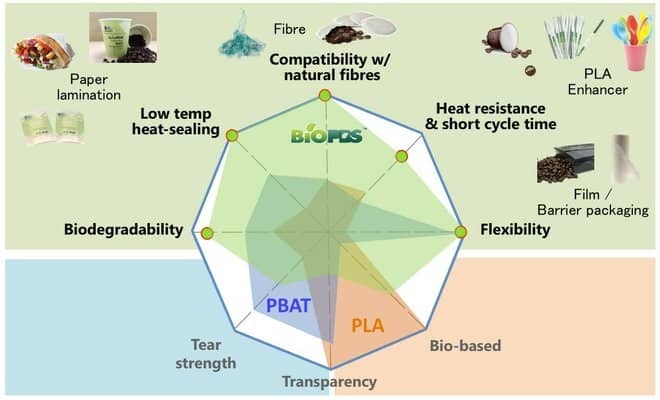
In a major shift, the United States is set to produce more oil and liquids than Russia and Saudi Arabia combined by 2025.
In Rystad Energy’s base case oil price scenario, US liquids production is forecast to surpass 24 million barrels per day over the next six years, thereby outpacing the combined output from Russia and Saudi Arabia.
“The United States, having regained its position as the world’s top liquids producer in 2014, is poised to accelerate into a league of its own over the next six years and eclipse the collective output of its two closest rivals by 2025,” said Rystad Energy partner Artem Abramov.

PLA is marketed to consumers for its ability to degrade in composting systems. But a Los Angeles startup sees mechanical recycling in the material’s future.
Launched in June 2017, Bioplastic Recycling is developing recycling processes and end markets for recovered polylactic acid (PLA), a biodegradable polymer derived from corn, sugarcane bagasse or other organic resources.
Often seen in foodservice items such as cups, lids, clamshells and cutlery, PLA makes up only a small percentage of the plastics market. But it’s projected to grow significantly over the next 10 to 15 years, said Mateo Neri, director of business development for Bioplastic Recycling.
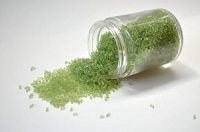
When a ban on single-service styrofoam packaging enacted by New York City Jan. 1 came up during a discussion with a group of friends, William Bystrom decided to research the issue. He ended up coming up with a petition to put a similar ban before voters at the May 13 annual town meeting.
“We’re dealing basically with food service articles,” such as take-out containers, cups and bowls as well as packing peanuts made of styrofoam.
A ban would prohibit restaurants and other food service establishments from using the containers, but would not impact building or marine uses of styrofoam, Bystrom said.

Primary polymer producers have raised their product prices by Rs 1,000 of various grades in tune with the movement in crude oil prices.
Polymer producers have raised their product prices second time in a month after their costs for crude oil, the sole raw material for production, went up.
Average price increase is 2.5 per cent to 3 per cent in January after a sharp fall in last four months of 2018.
Primary polymer producers have raised their product prices by Rs 1,000 of various grades in tune with the movement in crude oil prices.
Price of plastic raw materials including high-density polyethylene (HDPE), low density polyethylene (LDPE), linear low density polyethylene (LLDPE) and polyvinyl chloride (PVC) have also risen in tandem to take advantage of crude oil price rise.

At this year’s IDEA Show in Miami, FL, Sandler invites visitors to the garden of (green) developments.
The nonwovens manufacturer will showcase its broad range for hygiene products, wipes, and technical applications, among them nonwovens that take account of sustainability.
In babycare, feminine care, and incontinence products Sandler nonwovens for hygiene applications are designed to combine functionality and comfort in use.
“Efficient, soft nonwovens for intake layers contribute to optimum fluid management.
Particularly smooth product variants are ideal for use as tampon covers. A new generation of nonwovens for elastic closure systems combine improved extensibility and high stability in processing.
The focus of this year’s trade fair participation, however, will be on nonwovens for topsheet applications,” the company explains.
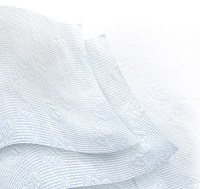
Oil prices this year will be influenced primarily by the health of the global economy, which is why prices have closely tracked equity and bond markets in recent months.
But that impact will be secondary and it is more likely to be crude prices that determine what happens with U.S. shale, OPEC+ policy and U.S. sanctions (graphic).
Predict what will happen to the global economy and the movement of oil prices in 2019 should become clear (“Weakening global expansion amid growing risks”, International Monetary Fund, Jan. 21).
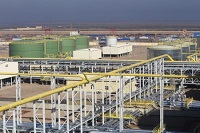
Turkish textiles exports to the United Kingdom, worth $2 billion dollar a year, will suffer a severe hit if the Brits leave the European Union with no deal on March 29 this year, Turkish news site Diken reported on Thursday.
Mustafa Gültepe, the head of the Istanbul Textile and Apparel Exporters’ Union, said that Turkey needed to make a free trade agreement with the UK to prevent the risks of a non-deal Brexit, which will mean Great Britain leaving the EU’s customs union.

Zero plastic pellet and dust loss: the goal of all High Performance Polymers Business Area facilities and plants
During the past months, all the production plants of the RadiciGroup High Performance Polymers Business Area have signed a formal pledge to become an Operation Clean Sweep® (OCS) Partner. The OCS is an international programme supported by industry associations* all over the world and designed to prevent plastic pellet and powder loss into the environment. The special focus is on materials handling and transport operations, from the arrival of raw materials to the departure of semi-finished products to be delivered to customers.
“The problem of the release of plastics into the environment.“ stressed Danilo Micheletti, COO of RadiciGroup High Performance Polymers, “is being tackled by our industry through awareness raising actions and initiatives designed and implemented over time, which require real commitment on the part of the companies involved in the value supply chain. Our Group has also taken on this challenge – which has reached global dimensions – by joining various industry association initiatives, one of which is Operation Clean Sweep.”
